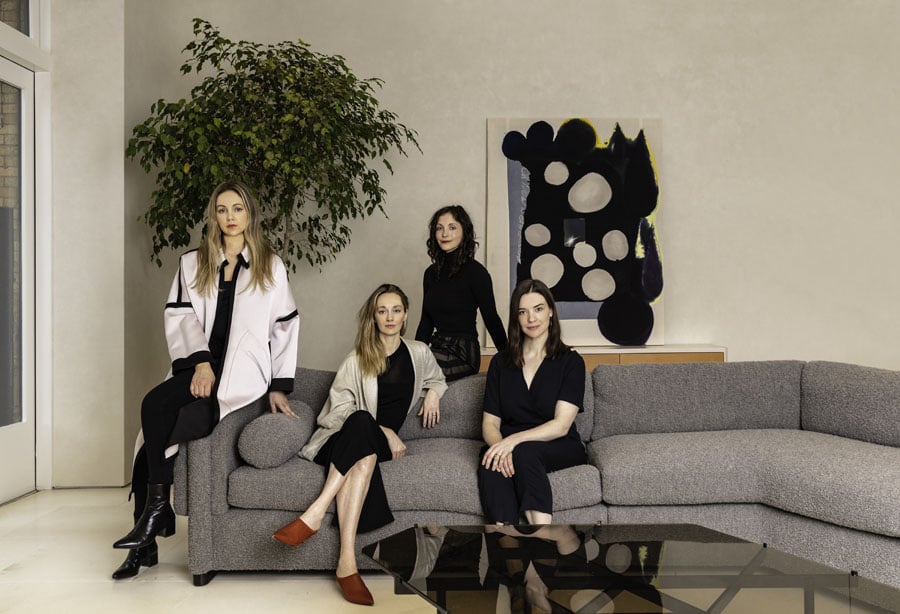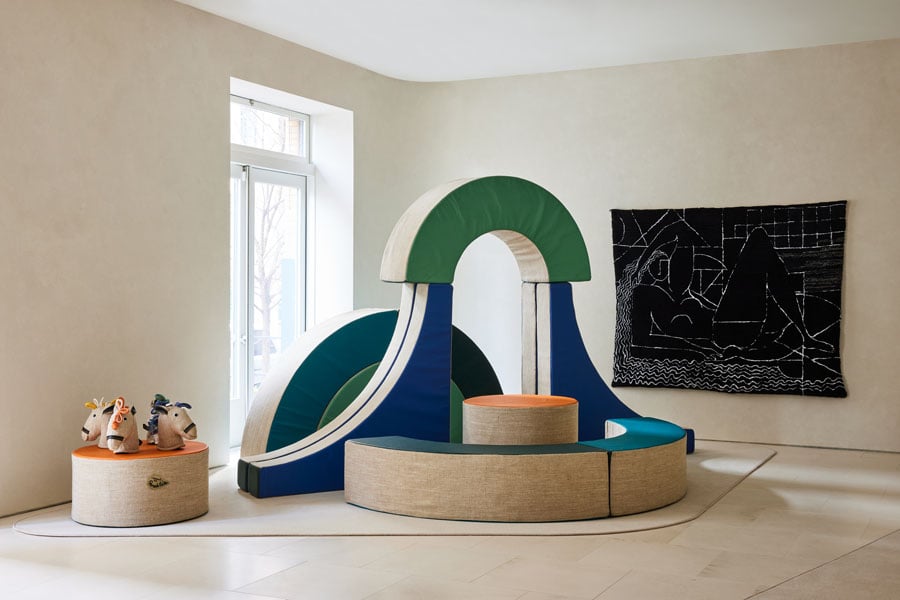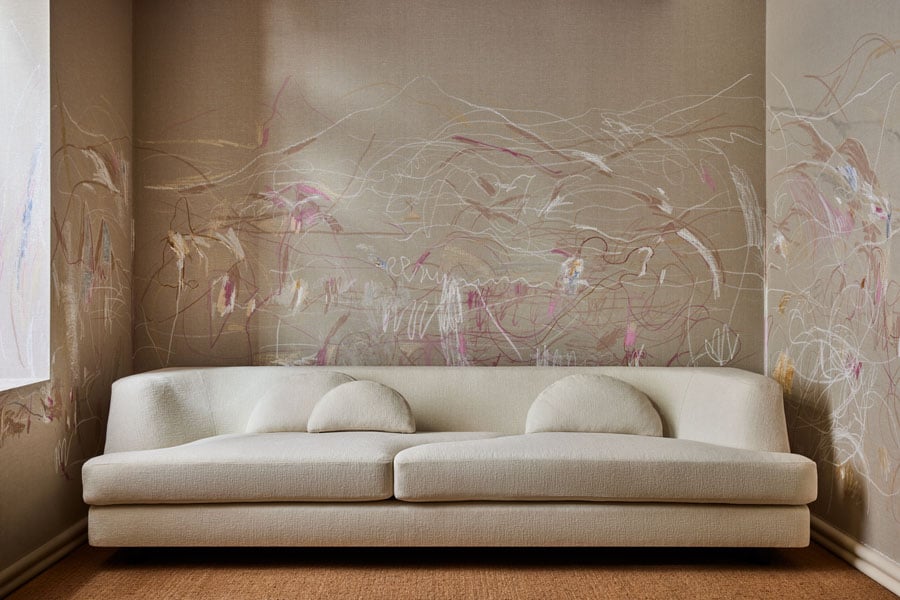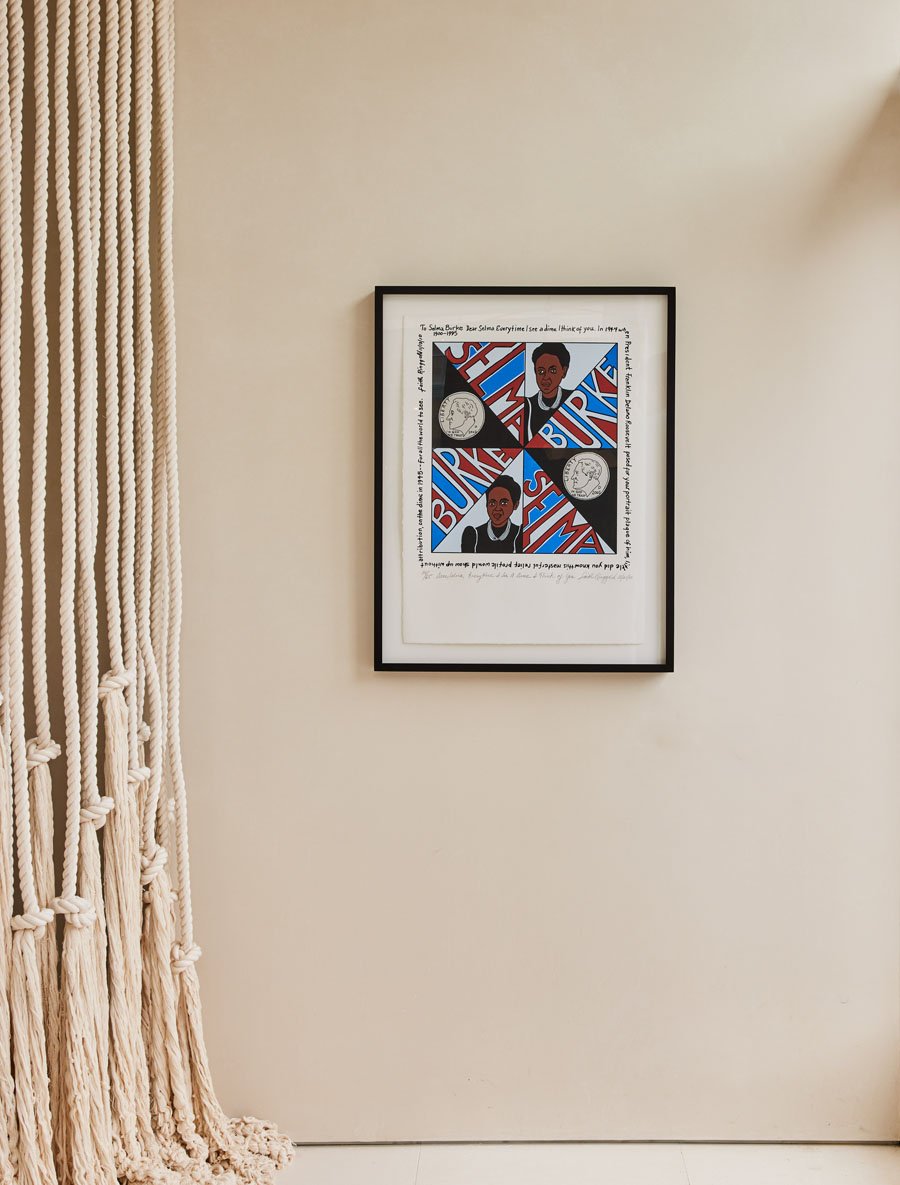
May 4, 2021
A New Exhibition Makes Motherhood Visible Through Design
Organized by Egg Collective and Tealia Ellis Ritter, Designing Women III: MOTHER brings together 28 artists and designers—all of them mothers.

If you’re seeing fewer mothers at your job, census data will verify it isn’t all in your head: There are 16 percent fewer in the workforce than there were a year ago. But even without the nightmare of a global pandemic, the workplace has not been kind to mothers, who face what is known as a “motherhood penalty”—the belief that mothers are less committed to their jobs than men, even when those men are fathers. (This bias has also been cited as an engine of the gender pay gap.)
Upending that bias will require not only changes in policy, but exposure to experiences that disprove it, say the organizers of Designing Women III: MOTHER, an exhibition conceived to do just that. Now open, the show marks the third edition of the Designing Women format launched in 2017. For this one, the founders of Egg Collective (the New York City–based furniture studio made up of Stephanie Beamer, Crystal Ellis, and Hillary Petrie) teamed up with Tealia Ellis Ritter, and studded Egg Collective’s Tribeca showroom with furniture, lighting, and—for the first time—fine art. The show’s 28 participants range from emerging designers to well-established artists, but all share one crucial trait: They are mothers.

Although the theme was decided before the lockdown last spring, the organizers emphasize that the past year underscores the show’s urgency: “Once the pandemic was upon us, we realized that the theme was even more important and timely,” they write in a collaborative statement. Their exhibition extends over five rooms, each of which puts art and design in formal or thematic dialogue. In one, the organizers explore the idea of stitching, setting a quilt by Loretta Pettway Bennett of Gee’s Bend, Alabama, with the sculptural, puzzle-like designs by Elizabeth Atterbury. In another section, a spray of foliage by Jean Pelle of Pelle lights up the wall behind a Lella Vignelli–designed coffee table. Commentary on motherhood is not explicit in each work by itself. Instead, motherhood is treated more as what Jessica Friedmann calls a political category—an identity that one can never shed.
Children, of course, are inextricable from the concept of motherhood. (Even if one loses a child, one never stops being a mother.) It is fitting, then, that childhood emerges as a theme here. In one area, fabric “blocks” and horseheads by Renate Muller suggest a jumbo playscape. Elsewhere, a child actually collaborates with her mother for an installation: a mural, produced by Calico Wallpaper cofounder Rachel Cope and her six-year-old daughter Willow. Streams of white, magenta, and gold dance across the wall, setting a backdrop for a room divider by Kai Avent-deLeon and black-and-white photo portraits by Tahereh Fallahzadeh.

But it is a serigraph by Faith Ringgold that offers some of the most important framing for the exhibition (and smartly, Egg Collective and Ritter have placed it at the start of the show). Titled Dear Selma, Every Time I See A Dime, I Think Of You, 2010, the piece depicts Selma Burke, the sculptor believed to have created FDR’s portrait for the dime. (John Sinnock, the U.S. Mint chief engraver, was credited with the design.) There’s more than one way to read into Ringgold’s work, not the least of which is the erasure of women, particularly women of color, from the artistic canon. But in the context of a show about mothers, this erasure feels even more affecting. Approximating motherhood and authorship, Dear Selma suggests that the people responsible for creating not only the designs in this exhibition, but all of us, have been absorbed by a system all too willing to forget their labor.
Designing Women III: MOTHER is on display until May 29, 2021. Appointments may be made through the exhibition website.
You may also enjoy “LikeMindedObjects Uses Waste to Create Sustainable Products With Personality”
Would you like to comment on this article? Send your thoughts to: [email protected]
Register here for Metropolis’s Think Tank Thursdays and hear what leading firms across North America are thinking and working on today.
Recent Viewpoints
Viewpoints
Navigating the Path to Net Zero



















